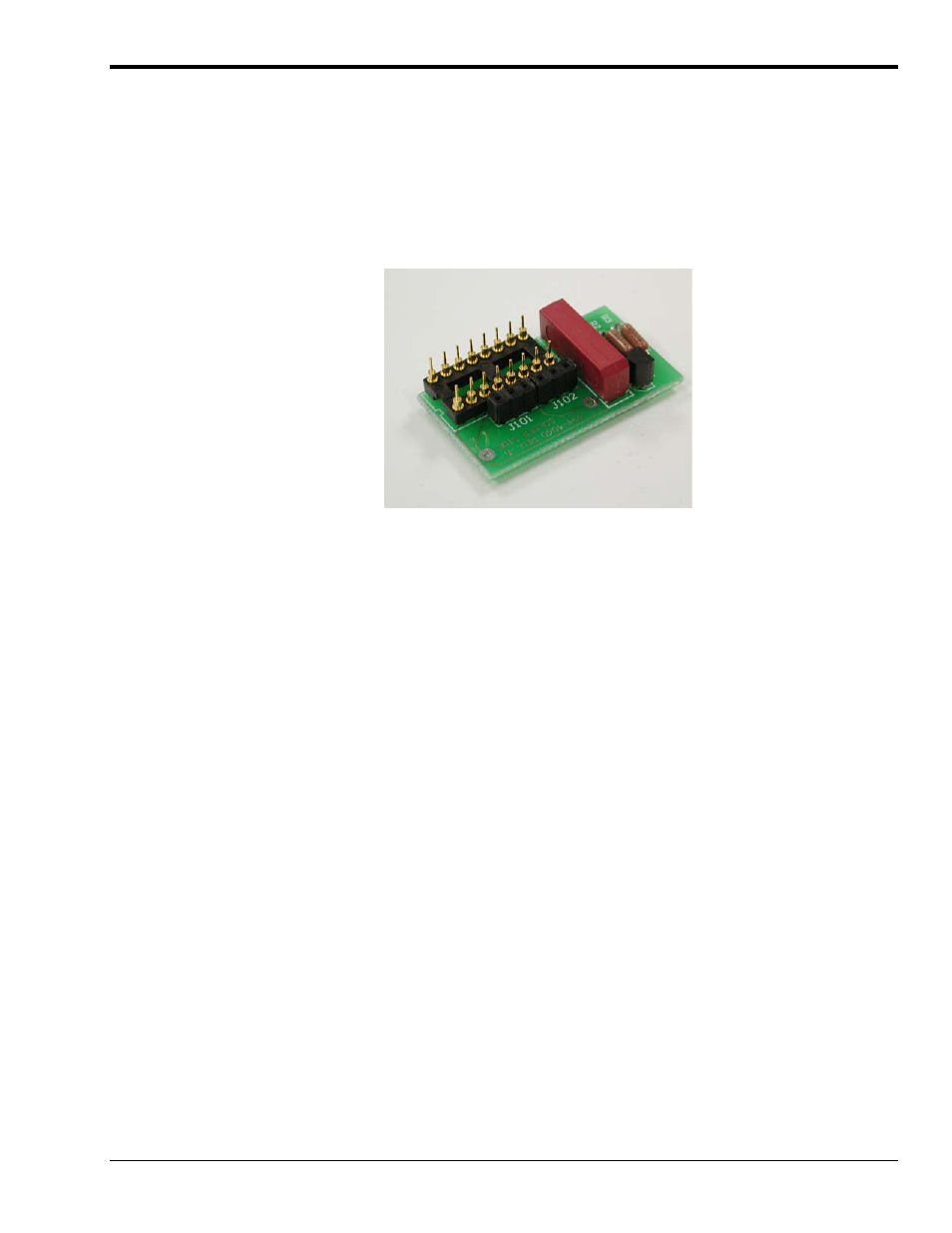Using the wbk16/lc load cell shunt cal option – Measurement Computing WBK Options User Manual
Page 55

Using the WBK16/LC Load Cell Shunt Cal Option
Purpose of the WBK16/LC
The WBK16/LC provides a non-committed dry contact on two pins of a single StrainBook or WBK16
channel connector. The WBK16/LC can be used for virtually all single value shunt calibration
requirements, some of which are not possible with the internal FET/analog switch provisions in the
standard channel configurations.
WBK16/LC
Shunt calibrations of load cells and pressure transducers, while conceptually equivalent to shunt calibration
of strain gages, do exhibit a few differences.
o
Varying physical locations of the shunt cal resistor
o
The shunt resistors are often expressed in engineering
units instead of ohms
o
A shunt switch contact with nominally
zero-ohms is required
Any of the following situations can be accommodated by the uncommitted shunt contact of the
WBK16/LC:
• A shunt calibration resistor may be provided internal to a load cell or transducer, with an extra
connector pin or additional wire in the cable with the requirement that the line be connected to one
of the excitation lines to produce a signal equivalent to a specific physical stimulus applied to the
transducer.
• A shunt calibration resistor with a defined physical equivalence may be supplied with a transducer
giving specific instructions for connections to provide a signal output from the device.
• A user may, empirically, or by electrical calculation, determine the physical equivalence of an
available resistance connected to accessible transducer lines to produce an output signal.
The shunt calibration resistor can be located internal (soldered onto the WBK16/LC in the provided “R1”
location) or external to the host StrainBook or WBK16 at a wiring transition location. Four schematics
which include an External Full Bridge follow.
WBK16, Strain-Gage Module
949794
WBK16, pg. 15
